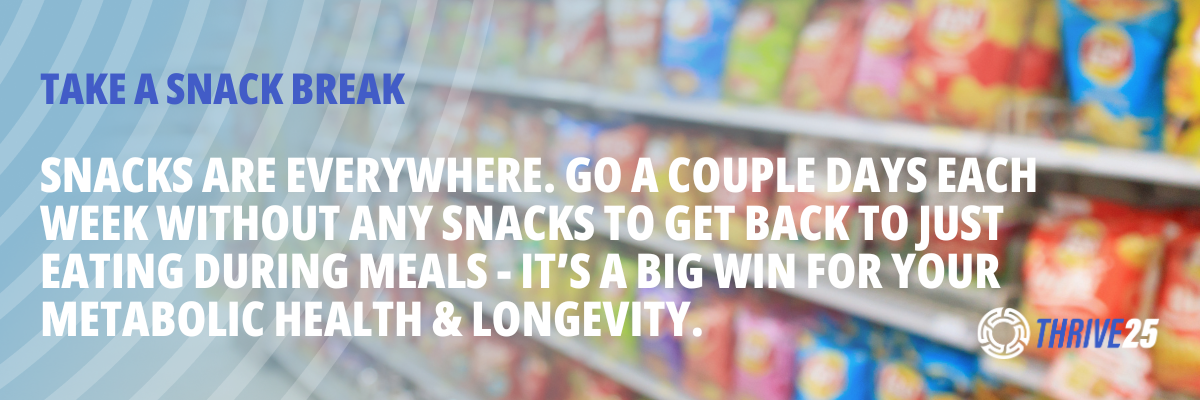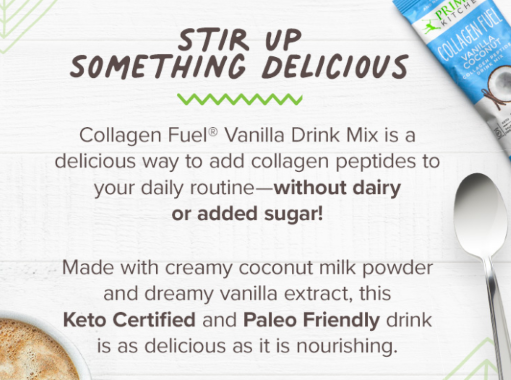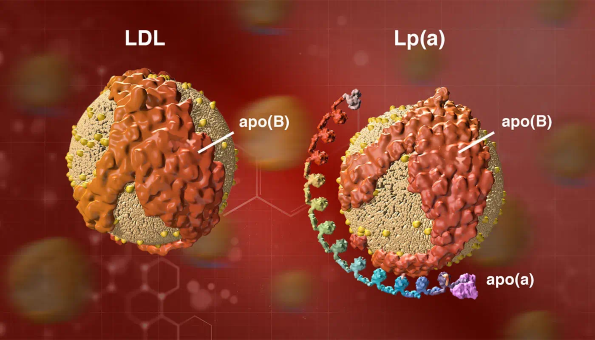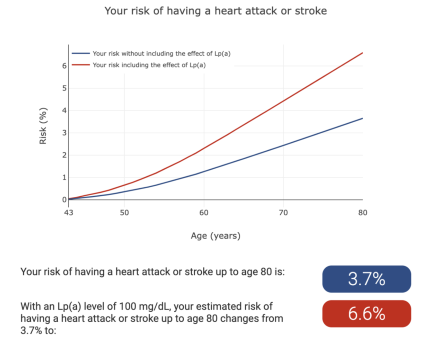Issue #384: The Heart Disease Biomarker You Need to Know About
Good morning. It’s Tuesday, September 10th. And Max’s 13th anniversary!
In today’s email:
Learn: Living on Snacks
Try: Snack Break
Measure: Lp(a)
In the News: Hacking Sleep?
Stat of the Day
The percentage of Americans over the age of 20 that have 3+ snacks per day. 95% of us snack at least 1x per day. (USDA)
Learn
Living on Snacks
I think I created a monster - two actually. My kids are obsessed with bars.
Fortunately, we get some relatively healthy ones (cerebelly) - but then they end up living on these and aren’t hungry for lunch or dinner when we cook real food.
They’re probably just watching their dad as I race through the day with a bar to get me through the afternoon on days I don’t prep a lunch.
Seems like that’s the case for everyone these days - just about all of us are snacking all the time (see Stat of the Day).
I know all about pushing snacks, I spent four years as President of a company called “SnackNation.” We were doing good by getting rid of junk snacks in offices all across the U.S. - and putting in “less bad” snacks. 🤷♂️
50 years ago snacking wasn’t as much of a thing.
But food companies have made sure it is now. Back in the day (1960’s-70’s), 250 highly-processed snacks were introduced a year - by the 80’s and 90’s there were 2,000 new snack SKU’s every year.
Take the example of Oreos - invented in 1912 - these cookies were pretty much the same for the next 100 years. But not anymore. Mondelēz has given us 12 new flavors in 2024 alone!
Why are they doing this?
Because snacks are what we want - it’s just too hard to pass up the convenience of a bag of chips, a bar or anything we can eat on the go.
But one of the biggest reasons for why 93% of Americans are metabolically unhealthy? You guessed it - snacks.
Here’s what happens when we snack:
1. We overeat - more snacks equals more calories.
2. We eat the wrong food - snacks have more sugar and junk than nutrients and fiber.
3. We eat all the time - don’t even worry about intermittent fasting, just breaks between meals is a great start.
I know so many founders building snack companies. Nearly all of them want to support better health and nutrition. And they’re just meeting demand - doing what we were trying to do at SnackNation.
But maybe we should take more snack breaks - not walking to the break room or kitchen for a snack, skipping the snack.
Try
Snack Break
I’m not one to count calories and I don’t think most people want to do this for more than a couple weeks.
Instead, count your snacks - set a standard of having a few days with no snacks and maybe a few days of just 1-2.
Easier said than done - snacks are a hard habit to break. Here are some ways to break free:
Walk around the block - not into the kitchen
Grab fruit (apple and avocado are filling) instead of a processed snack
Drink one cup of water (plus some green tea) to stay full
PRO TIP: Just don’t buy ‘em. Make it more difficult to get - you’ll see that you don’t really need them and you feel way better without them.
Thrive25 Partner Spotlight
We’re only biased because it’s good. Our friends at Primal Kitchen make one of the highest quality collagen supplements on the market and they’re always doing regular testing to keep out the heavy metals that invade too many of these unregulated supplement.
So try Primal Kitchen’s Collagen Fuel - no artificial sweeteners, dairy, whey or soy, and 100% paleo and keto friendly.
Enjoy a 10% discount off your entire order at Primal Kitchen. Don’t miss out - click HERE to claim your discount today!
Measure
Lp(a)
To really protect your heart - you’ve got to go beyond the standard cholesterol panel from your doctor.
We already talked about the “cars” that can clog your arteries - Apo(b) (see Issue #322).
Well there’s another one you’ve got to pay attention to - lipoprotein (a) or Lp(a). And yes, I apologize in advance for the short names with letters in “()”.
Lipoprotein is a combination of a lipid (fat) and protein. For Lp(a), it’s when LDL cholesterol merges with a protein, in this case Apo(b) (so in a way LDL cholesterol from your lipid panel does still matter).
Lp(a) acts as a kind of wrapper around the LDL molecule. The problem is all those little wrinkles and crevices in the wrapper.
This is how a bunch of junk (other fats) can get stuck to the molecule and further stick to the walls of your blood vessels - the endothelium.
When these particles get stuck - plaque can build, creating blockages to the heart or brain and increasing the potential for heart attack or stroke.
As Peter Attia notes in his book Outlive, this is exactly what happened to Biggest Loser host Bob Harper who was a symbol of optimal health, but had a heart attack at 52.
Like Bob - 20-30% of us have elevated Lp(a). This isn’t due to anything we’ve done ourselves - it’s typically genetic.
That’s why it’s important to test Lp(a). But there’s good news -
First - you only need to test this 1x because it doesn’t really change much over your life.
Second - elevated results don’t mean heart disease is inevitable.
What it means is that Lp(a) can increase your “relative” risk up from 25% to even 300%. But consider what this means.
If you have a 5% risk for heart attack - based on your metabolic health and lab test results. Then having high Lp(a) - like 100 mg/dL - might increase the absolute risk to 10%.
Optimal Range
When you get tested for Lp(a) - your risk profile changes if the results are higher than 30 mg/dL. But the lower the better.
It’s also about the concentration - which might be measured in nm/L and be a more accurate assessment.
What’s Next
If you do score high on this test - then there are a few things do consider if you really want to protect your heart:
1. Get a Calcium Scan - identify if you’ve already got plaque starting to build up. Anyone should be able to request this test from their doctor, especially after the Lp(a) result.
2. Cut out Sugar/High Carbs - excess sugar, soda, and simple carbs (bread, pasta, cereal) elevate your triglycerides. This is a risk factor for heart disease we can control. So even if Lp(a) is going to double your risk, best to start with the lowest risk possible.
3. Limit Saturated Fat - some people have higher LDL and thus will have higher Lp(a) from excess saturated fat pumping through their blood vessels.
The Point: This isn’t a bad thing to figure out. It just might mean you need to be even more diligent with your heart health -
Get your annual lab tests, preventive screens and take your “medicine” 365 days/year:
Don’t skip the workout or moving 10K steps
Get quality sleep
Mind your stress
Enjoy the gift that is life
In the News
Sleep Hacks - Help or Hype?: "Sleepmaxxers" are taking extreme measures for the perfect sleep. From mouth tape to high-tech gadgets, learn what works, what doesn't, and when sleep optimization can backfire. Find out how to rest better without overdoing it - we find that simple is usually the most impactful! (NYTimes)
Rediscover Joy: Struggling to find joy? Learn how to overcome joylessness with practical steps like savoring small moments, smiling more, and clearing emotional blocks. Boost your mood, improve wellbeing, and embrace happiness with these simple strategies. (Washington Post)
Targeting Aging Cells: Scientists are identifying key surface markers on senescent cells, paving the way for targeted treatments to combat aging and cancer. Discover how these findings could revolutionize therapies for age-related diseases. (Lifespan.io)
Thanks for joining us today!
Want to see what we’re up to? Sign up for early access to our platform
Check out the latest videos on our YouTube channel
Got feedback, recommendations or stories to share? Tell us what’s on your mind here
Want this direct to your inbox? Sign up here
Why Thrive25
We’re 40-something dads that felt our bodies and minds start to slow down and we’re not ready for that. We found too much information on every subject. So we started Thrive25 to transform what we’ve learned into something useful for the rest of us to spend just 3-5 min a day to optimize our health & longevity.
This newsletter is for you and we truly value your feedback. Never hesitate to reach out to us at team@thrive25.com.
To health!
Sign up for free:
The information in this newsletter is for informational purposes only and may not be appropriate or applicable based on your individual circumstances. Thrive25, Inc. does not provide medical, professional, or licensed advice. Please connect with your healthcare professional for medical advice specific to your health needs.








